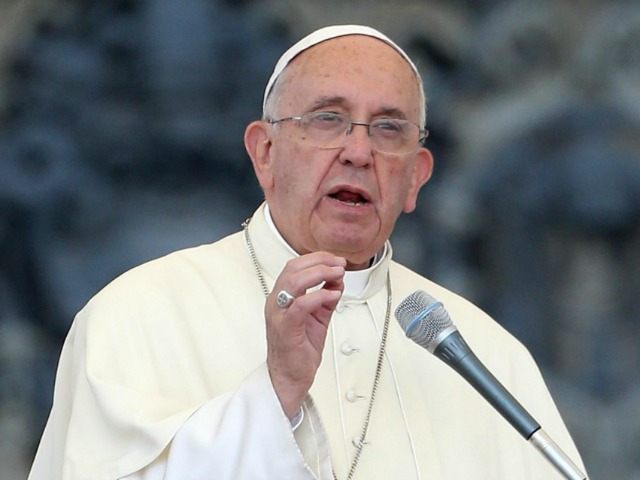ROME — Pope Francis said Monday the global climate crisis is “much more complex and enduring” than the coronavirus pandemic.
It is not just human beings who are ill, the pope told members of the Diplomatic Corps accredited to the Holy See. “The pandemic has demonstrated once again that the earth itself is fragile and in need of care.”
The “ecological crisis caused by the indiscriminate exploitation of natural resources” is “much more complex and enduring” than the health crisis, the pontiff stated, “and requires shared long-term solutions.”
“The impact of climate change, for example, whether direct, such as the extreme weather events of flooding and drought, or indirect, such as malnutrition or respiratory disease, entail consequences that persist for a considerable time,” he declared.
As on other occasions, the pope took advantage of the occasion to promote the next U.N. climate change conference.
It is my hope, he said, “that the next United Nations Climate Change Conference (COP26), to take place in Glasgow next November, will lead to effective agreement in addressing the consequences of climate change.”
“Now is the time to act, for we are already feeling the effects of prolonged inaction,” he warned.
The pope went on to explain that climate change is producing the gradual disappearance of “numerous small islands in the Pacific Ocean” as well as provoking “the destruction of entire villages” as well as displacement of families and communities “with the loss of their identity and culture.”
Francis also credited climate change with recent floods in Vietnam and the Philippines as well as “increased warming of the earth, which has caused devastating fires in Australia and California.”
The effects of climate change are particularly grave in Africa, the pope warned, leading to food insecurity “with millions of people suffering from hunger.”
In 2015, Francis published a controversial encyclical letter on the environment called Laudato Si, urging nations and individuals to exercise more responsible stewardship of the created world.
In that letter, however, Francis said that he wished to encourage debate rather than impose his own understanding of environmental concerns.
“On many concrete questions,” he wrote, “the Church has no reason to offer a definitive opinion; she knows that honest debate must be encouraged among experts, while respecting divergent views.”
“Here I would state once more that the Church does not presume to settle scientific questions or to replace politics,” he said. “But I am concerned to encourage an honest and open debate so that particular interests or ideologies will not prejudice the common good.”
Francis also said it is necessary to create “a social debate” in which those involved “have access to adequate and reliable information in order to make decisions for the common good,” something rarely seen in contemporary discussions of climate change that tend to exclude dissonant voices.
That same year, Australian Cardinal George Pell, who was in charge of the Vatican’s economic secretariat at the time, said it was important for the Church to be modest in proposing scientific theories.
The Church “has no particular expertise in science,” Pell said, and “has got no mandate from the Lord to pronounce on scientific matters. We believe in the autonomy of science.”

COMMENTS
Please let us know if you're having issues with commenting.